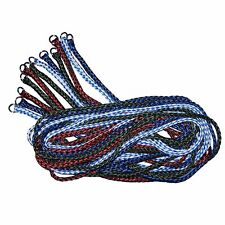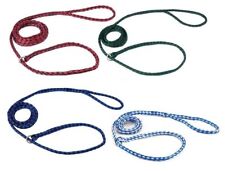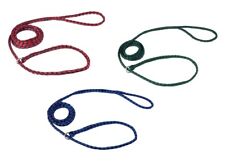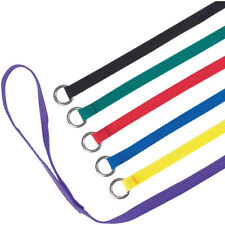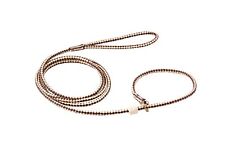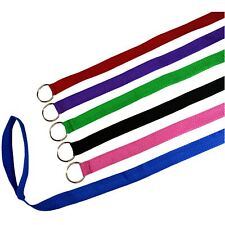Vegan Pet Foods: What’s New?

If you are thinking of switching your family to an exclusively plant-based diet, you may be wondering if you should switch your pet too.
Of the many questions I get from clients, ones concerning vegan pet foods are very common. So, here is the “skinny” on if your pet could benefit from a vegan diet.
The first question I always ask is, “Is the diet for a cat or a dog? or both?”
Dogs, as omnivores, can do well when fed a vegan diet. Even well-respected veterinary diet maker Royal Canin has a vegetarian dog food that is technically vegan – its ingredient list does not list any animal-based products.
Cats, on the other hand, are obligate carnivores and should not be eating a vegan diet. Cats have evolved as meat-eating hunters and will almost exclusively eat mice, birds, fish and other small animals if feral.
Feeding cats a meat-based diet is only natural.
At this time, there are no trusted commercial vegan cat foods on the market. Cats’ nutritional requirements are more complex than dogs. They require a high amount of complete, high-quality protein that is found in meat. Certain amino acids (like taurine) and fats (like the omega-6 arachadonic acid) are found in higher levels in meat and are difficult to artificially supplement.
Why switch to a vegan diet?
- Save the Planet
Vegans consider plant-based diets more ecologically friendly. While this is intensely debated, a pound of meat can take more energy to produce compared to a pound of plant-based protein.
- Animal Welfare
People often decide to become vegan due to animal welfare concerns. Many are concerned about how the animals are treated prior to slaughter. Eliminating meat from your pet’s diet will ensure that your family is all on the same page ethically.
- Expense
It is possible to feed a vegan diet that is less expensive than premium or “boutique” commercial dog foods containing meat. ‘Humanely raised’ or organic meats, eggs and dairy products command a higher cost than their mainstream counterparts, so using mushrooms, tempeh, seitan, and soy-based proteins can potentially be less costly.
How can a vegan diet benefit my dog?
For some…..say goodbye to poor digestion and itchy skin!
Some dogs that have allergies or food intolerance can benefit from a vegan diet. As mentioned previously, Royal Canin developed its Vegetarian Formula (dry and canned versions are available) for dogs that have allergies to common meat proteins. The protein sources come from microorganisms (found in brewer’s rice), potato protein and amino acid supplements. This diet is considered on the low end of ‘normal’ for protein content, which most dogs tolerate just fine.
However, normal, otherwise healthy dogs may not show any significant benefit to their health by going vegan. Some vegan owners report that their dogs developed a less shiny, more brittle hair coat whist on a vegan diet. This is likely due to the diet being too low in fats, especially omega-3 fatty acids that are plentiful in fish oils and other animal products.
What about homemade vegan diets?
In an interview with WebMD, board-certified veterinary nutritionist Dr. Cailin Heinze stated:
“For dogs, certainly vegetarian and vegan diets can be done, but they need to be done very, very carefully. There is a lot of room for error, and these diets probably are not as appropriate as diets that contain at least some animal protein.”
Homemade vegan diets are possible. It is highly recommended to consult with a veterinary nutritionist for a balanced recipe. Dogs do require a specific amount of calcium in their diet and many human multi-vitamins contain way too much vitamin D. So, be careful and follow your veterinary nutritionist’s recipe closely.
If you are interested in alternative, Eastern or holistic veterinarians, please use the resources at the bottom of this article. Many of these holistic and ‘integrative’ veterinarians practice ‘food therapy’ and will help to provide a balanced diet plan for your particular dog.
You mentioned mushrooms. What mushrooms can be incorporated into my dog’s vegan diet?
Believe it or not, mushrooms contain protein that both humans and dogs can digest and use in our bodies.
If you are interested in using mushrooms as a protein source in your dog’s home-made diet, be sure to ask your veterinary nutritionist to include them in the balanced recipes.
Mushrooms that are safe for both humans and dogs to eat include:
- Button mushrooms
- Shiitake mushrooms
- Oyster mushrooms
- Portobello mushrooms
- Porchini mushrooms
It is important to re-hydrate dried mushrooms before cooking and feeding to your dog.
As far as what’s new – commercially available vegan, mushroom-based pet diets are on the horizon.
Hailing from Asia, a fungus commonly known as ‘koji’ has graced our Western tables for decades…and most of us didn’t know it. Koji’s scientific name is Aspergillus oryzae.
Koji is an important ingredient in making sake, soy sauce and miso. It normally grows on rice but it can be cultured on beet root pulp commercially. Wild Earth pet foods has recently announced that their koji-based pet foods will be released in the summer of 2018.
What about flaxseeds?
Flax is an excellent source of omega-3 fatty acids, but they only provide one type of omega-3: ALA. The three important omega-3s for mammals are ALA, EPA and DHA.
Humans are able to convert ALA into EPA in our own bodies. Dogs, however, are not efficient at doing this, so it is necessary to provide EPA and DHA in their diet.
EPA and DHA need to come from other sources, most of which are unfortunately animal-based (fish, krill). Vegan sources of EPA and DHA include sea buckthorn berry, algae and seaweed. Some vegans are OK with their dog taking a krill and algae-based omegas supplement.
Flaxseeds need to be freshly ground for your dog to be able to digest the omegas. Most dogs do not chew their food well enough to benefit from being fed whole flaxseeds. The hard, fibrous shell of the whole seed will slip right through your dog’s digestive tract.
Making the Switch
If you are interested in changing your dog to a plant-based or vegan diet, consult with your veterinarian first. If your dog has specific health issues that need to be taken into consideration, provide details of your pet’s diagnosis to your veterinary nutritionist.
Veterinary nutritionists are available often via internet consult with your regular veterinarian. It is easy and worth the investment to pay for a trusted, balanced vegan recipe. It will put your mind at ease knowing that your fur baby is getting the nutrition he deserves.
As with any pet food change, make the switch slowly over the course of a week:
Days 1-2: feed 1/4 new food and 3/4 old food
Days 3-4: feed 1/2 new food and 1/2 old food
Days 5-6: feed 3/4 new food and 1/4 old food
Day 7: feed 100% new food
Veterinarian-Trusted Vegetarian Dog Foods:
Resources
American Holistic Veterinary Medical Association https://www.ahvma.org/
UC Davis Veterinary Nutrition Support Service: http://nutrition.vetmed.ucdavis.edu/
Dr. Susan Wynn. Integrative veterinary medicine and veterinary nutrition. www.susanwynn.com
Perea, Sally. Making Pet Foods at Home. ACVIM Proceedings. 2010. Veterinary Information Network.
Switching Your Pet’s Food: https://www.hillspet.com/dog-care/nutrition-feeding/how-to-transition-my-dogs-food


